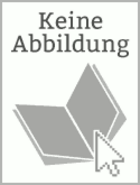Detailansicht

Hellenistic Age
eBook
ISBN/EAN: 9780191076800
Umbreit-Nr.: 4552483
Sprache:
Englisch
Umfang: 144 S.
Format in cm:
Einband:
Keine Angabe
Erschienen am 21.04.2016
Auflage: 1/2016
E-Book
Format: PDF
DRM: Adobe DRM
- Zusatztext
- The three centuries which followed the conquests of Alexander are perhaps the most thrilling of all periods of ancient history. This was an age of cultural globalization: in the third century BC, a single language carried you from the Rhone to the Indus. A Celt from the lower Danube could serve in the mercenary army of a Macedonian king ruling in Egypt, and a Greek philosopher from Cyprus could compare the religions of the Brahmins and the Jews on the basis offirst-hand knowledge of both. Kings from Sicily to Tajikistan struggled to meet the challenges of ruling multi-ethnic states, and Greek city-states came together under the earliest federal governments known to history. The scientists of Ptolemaic Alexandria measured the circumference of the earth, whilepioneering Greek argonauts explored the Indian Ocean and the Atlantic coast of Africa. Drawing on inscriptions, papyri, coinage, poetry, art, and archaeology Peter Thonemann opens up the history and culture of the vast Hellenistic world, from the death of Alexander the Great (323 BC) to the Roman conquest of the Ptolemaic kingdom (30 BC).
- Kurztext
- In a series of penetrating and attractively readable essays, Stefan Collini explores aspects of the literary and intellectual culture of Britain from the early twentieth century to the present. Common Writing focuses chiefly on writers, critics, historians, and journalists who occupied wider public roles as cultural commentators or intellectuals, as well as on the periodicals and other genres through which they attempted to reach such audiences. Among thefigures discussed are T.S. Eliot, Graham Greene, J.B. Priestley, C.S. Lewis, Kingsley Amis, Nikolaus Pevsner, Hugh Trevor-Roper, Christopher Hitchens, and Michael Ignatieff. The essays explore the variety of such figures' writings - something that can get overlooked or forgotten when they are treatedexclusively in terms of their contribution to one established or professional category such as 'novelist' or 'historian' - while capturing their distinctive writing voices and those indirect or implicit ways in which they position or reveal themselves in relation to specific readerships, disputes, and traditions. These essays engage with recent biographies, collections of letters, and new editions of classic works, thereby making some of the fruits of recent scholarly research available to awider audience. Collini has been acclaimed as one of the most brilliant essayists of our time, and this collection shows him at his subtle, perceptive, and trenchant best. Common Writing will appeal to (and delight) readers interested in literature, history, and contemporary culturaldebate.